It is not only regarding energy policy that Germany remains in a Peter Pan mode for the time being: several events this month have revealed that Berlin, despite its immense burdens, is reluctant to push through a more pragmatic and far-sighted immigration policy. Already in its coalition agreement, the current federal government of Social Democrats, Greens and Liberals announced that it would make it easier to obtain citizenship and legalise rather than criminalise immigration.
Germany can also afford this policy because it leaves the "ugly pictures" at the border to the other EU member states. Avoiding "ugly pictures" was also one of the main reasons why Angela Merkel opened the borders to millions of immigrants in the summer of 2015. Short-term PR is more important to German politics than long-term strategies: the prevailing thought is that Germany, as a rich country, can ultimately smother any problem with money. The idea that there are intangible goods that money cannot buy, or that this money might run out at some point, apparently does not exist in Berlin.
This policy suffered a severe blow at the European migration summit in mid-February. Chancellor Olaf Scholz, together with his Spanish counterpart Pedro Sanchez, wanted to keep tough wording out of the final declaration. Instead, the chancellor promoted the German government's own programme: he wanted more legal channels for "labour migration". Europe, he said, must work to ensure that those "we need for our labour markets also come here".
To the EU partners, this must have sounded like a speech from a parallel universe. And presumably it did - because the other member states got their way with their demand for more border fences, while the German elephant in the china shop basically talked about the need for even more migration. Like in 2015, Germany will not change its migration policy in order to come out with a clean slate. As is well known, it needed a billion-euro agreement with Erdogan's Turkey to tame the migration flow somewhat. There is a new parallel here with Germany's energy policy: Europe's largest economy prefers to make itself dependent on non-European powers rather than betray its own ideology.
There is also a paradox here: although Germany was not able to push through the demands of its policy at the European migration summit, the realpolitik curb of the partner states is giving it a pass. In domestic politics, it is becoming more and more apparent that the "ugly pictures" at the border that were to be avoided can now be seen in the country itself. This does not only concern the rising number of assaults and sexual offences. On 5 December 2022 only, the country was shocked by an attack of an Eritrean refugee on two girls: one girl was killed, the second seriously injured. And now the social peace as a whole is threatening to topple.
So the municipalities launched a call for help towards the federal government. "Social tensions are growing partly in the vicinity of facilities for refugees. That worries us a lot in the cities", explained Helmut Dedy from the Association of Cities. Money is lacking everywhere, for example for more staff in day-care centres and schools. Otherwise, integration could not succeed. "The financial resources for the reception of refugees must be dynamically adjusted to the actual number of refugees", Dedy demanded.
Such demands fall on open ears in migration policy. As mentioned above, German politicians are sure that they can solve every problem with money. The fact that immigration by millions cannot be solved with mere money and that credit transfers do not make integration work is completely foreign to the materialistic mind. The fact that immigration from foreign cultures has complex effects that are fundamentally related to mentality, religion and culture, and that certain migrants do not want to integrate at all but insist on their right to continue living their identity undisturbed, remains unspoken. "Nothing is being taken away from anyone" was one of the slogans of the 2015 migration crisis - as if the money that the state generously distributes had been "earned" by the state and not previously wrested from the German taxpayer.
Despite Germany's blinkered approach to migration policy, changes are on the horizon. While UNESCO awards former Chancellor Angela Merkel - the main person responsible for the current line on the refugee issue - for her "courageous" policy in 2015 - there are ongoing detachment processes in her party, the CDU. This is surprising on the one hand, but necessary on the other.
For Germany's generous immigration policy thrives on a consensus across all parties - from the radical left-wing Left Party to the Greens, Social Democrats, Liberals and centrist Christian Democrats. Anyone who did not share this consensus could be excluded as "right-wing", even as racist, "dark German", misanthrope. In short: as persona non grata not only from political viewpoint, but even from social discourse perspective. The success of the right-wing nationalist AfD is due to its role as the antithesis of this consensus. In Germany, one could witness first-hand for years the tyranny of the majority diagnosed by Alexis de Tocqueville.
But this rise of the AfD has significantly damaged Christian Democracy as the country's once largest and most important party. Under Merkel, it has betrayed its brand essence and jettisoned both its economic liberal and value-conservative wings. The migration issue is a crucial one for the CDU in its post-Merkel era. However, it cannot (yet) expose itself like the AfD because the cultural hegemony of the left is too dominant. Anyone who is critical of current migration policy is suspected of being at least a racist, if not an AfD supporter. The Social Democrats have even made it one of their slogans that a change in migration policy would "play into the hands of the right".
However, the Christian Democrats have shown in several places this month that they are willing to learn from their mistakes - even if only in the pragmatic fight for electoral votes. In Berlin, for example, where elections were held on 12 February, the CDU campaigned like it had not done for years. It addressed the issue of crime against foreigners, campaigned for more police and criticised the clan structures in migrant neighbourhoods. At the European level, Manfred Weber of the CSU came so close to the content of the "right" in his positions that the ID parliamentary group, to which the AfD also belongs, accused him of trying to steal their programme.
A remarkable clash occurred at the national migration summit, which followed the European migration summit. The Social Democratic Federal Minister of the Interior, Nancy Faeser, who chaired the summit, excelled in her own self-praise, but otherwise could only give vague declarations of intent. This was clearly not enough for the Christian Democratic representatives. The President of the German District Association made it clear that the municipalities were in a worse situation than in 2015/2016 and advocated for an expansion of the EU's external borders. The Hessian Minister of the Interior warned that the mood in the state was in danger of tipping. When an SPD representative praised the current migration policy, there was a scandal: a representative of the CDU-led Landkreistag left the hall in protest.
While the dogma of open borders and unlimited admission still stands, the burden on municipalities is now even leading to the spearhead of the "Refugees welcome" movement, namely the Greens, coming under pressure from their own party colleagues. Several party representatives, mainly local politicians, launched a memorandum for a more pragmatic immigration policy. The party leadership suppressed and discredited the paper by all means. Yet the mere existence of such a cry of alarm shows that even the party with strongest ideology on migration issues can no longer avoid reality when its own Green mayors groan under the burdens of the federal German "welcome culture".
For the copiously avoided "ugly pictures" reached a new climax last week. This was in the south-western German town of Lörrach, which lies in a core area of the German Greens. There, the tenants of a municipal housing association received a letter announcing to the residents that they would have to vacate their flats by the end of the year. They would be given notice to quit – for refugees would have to be accommodated in their flats.
Tenants out, refugees in? The media tried to downplay the case. But the fact that mainly socially weak residents of a tenement block had to make room for the misguided migration policy caused an outcry throughout the country, which could no longer be dealt with by dismissing them as racist hate comments. The "ugly pictures" were now there, in the form of a distribution struggle between the weaker social classes.
The promise that migration policy would "not take anything away from anyone" turned out to be a lie. It is not only social peace that is threatening to collapse in Germany. Elsewhere, the mood has long since changed. Only 16.7 percent of Germans still rate the federal government's migration policy as positive. The only question that remains is whether the Germans will grow up enough to reflect this insight in the next election.
Read also
A green economy minister threatens a touristic nature paradise
Rügen is a place of romantic longing for many Germans. Today, the largest island in the republic has primarily the reputation of a tourist resort, seaside place and nature reserve. And one artistic vision of it remains especially vivid in the German soul: a romantic painting by Caspar David Friedrich, the chalk cliffs in which have etched themselves into our memory.
Marco Gallina
The Finnish election is a signal for European conservatives
Sanna Marin is history. This is not without irony: usually, it is the "woke" young generation that overturns monuments to great historical figures. Yet this time, with Marin, a left-wing icon only 37 years old is toppling. She was a figurehead even in the liberal camp.
Marco Gallina
A King for Germany
King Charles III visited Germany, continuing thus a line of tradition established by his mother. Not so much the visit itself, but rather the reactions to it cast a telling light on Germany in particular, and Europe in general. Monarchy, one could have the impression, is actually something that belonged to the Middle Ages.
Marco Gallina
How an eco-lobby controls Germany
State secretaries are the real brains of the ministries. As politicians, it is the ministers who are the eye-catchers for the media, who have to make their party-political mark, justify themselves and stand in front of the cameras – there is not much time left to manage the operational business.



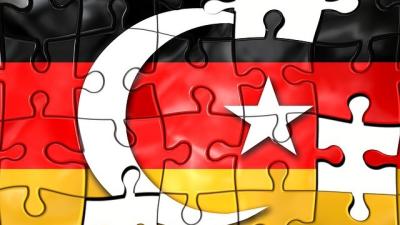

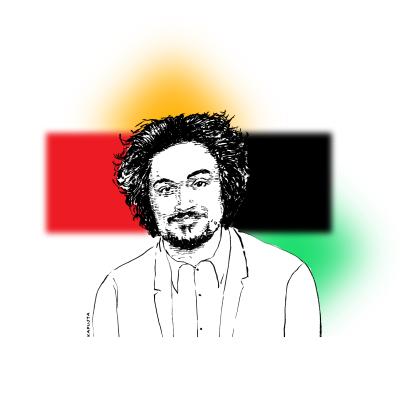


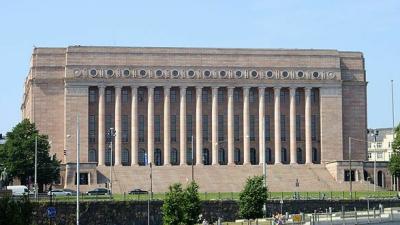

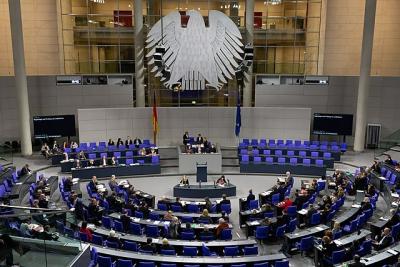

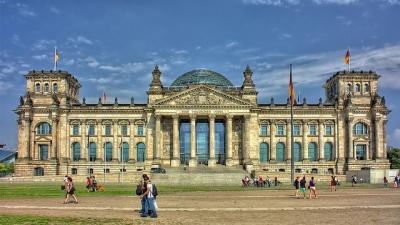

Comments (0)